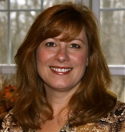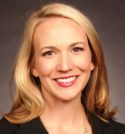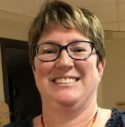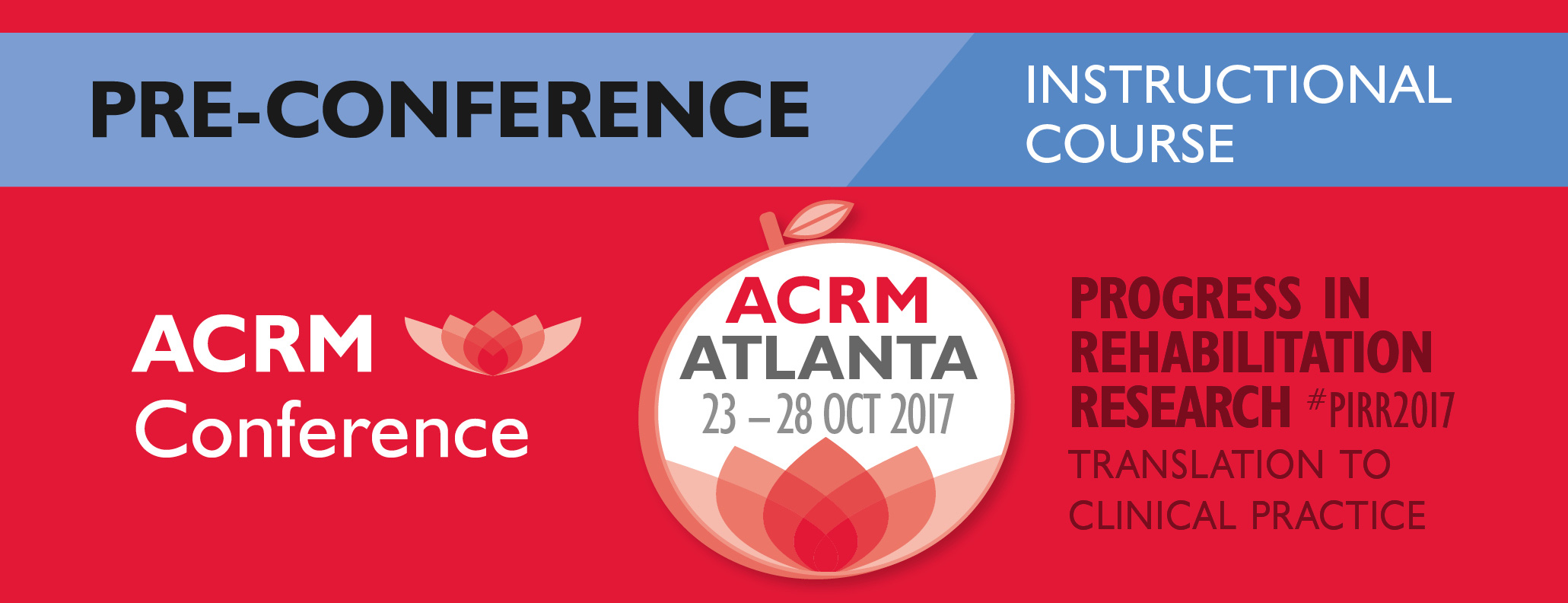WED 25 OCT // 8:30 AM – 12:30 PM
Primary Content Focus: Stroke
Secondary Content Focus: Clinical Practice (assessment, diagnosis, treatment, knowledge translation/EBP, implementation science, program development)
Tertiary Content Focus: Quality Improvement and Implementation Science
Optimizing transitions of care for stroke survivors for at least a one year period of time has the potential to improve outcomes in motor, cognitive, language and psychosocial functions. We discuss innovative programs implemented across the continuum of care at two urban rehabilitation networks in the U.S. with focus on (1) utilizing consistent outcome measures for therapy and treatment; (2) enrolling and tracking stroke survivors in care coordination beyond hospital discharge; (3) implementing proactive discharge preparedness; (4) integrating multi-dimensional health literacy principles; and 5) facilitating readiness to make lifestyle changes for secondary stroke prevention and improved quality of life.
LEARNING OBJECTIVES
- Discuss components of an innovative transdisciplinary process for maximizing preparedness from inpatient discharge
- Identify the potential benefits for stroke care coordination models in terms of improving quality of life for stroke survivors
- Identify the potential for reduction of morbidity and mortality for stroke survivors using care coordination
- Understand barriers and complications which prevent stroke survivors from receiving recommended interventions and services in the post-acute world
PRESENTERS
Diane Chappuis, MD, OT
Courage Kenny Rehabilitation Institute
Nancy Flinn, PhD, OTR/L
Courage Kenny Rehabilitation Institute
Molly Trammell, PT, MPT
Baylor Institute for Rehabilitation
Jill Henly, MSW
Courage Kenny Rehabilitation Institute
Ann Woolsey, MS
Courage Kenny Rehabilitation Institute
Stacy Shamblott, CTRS
Courage Kenny Rehabilitation Institute
Marlene Vega, PsyD
Baylor Institute for Rehabilitation
BIOS

Dr. Diane Chappuis, MD, OT, is a Board Certified Physiatrist with a clinical and administrative practice at Courage Kenny Rehabilitation Institute (a part of Allina Health, a 13 hospital system in Minnesota and Western Wisconsin). She has subspecialties in stroke and neurological rehabilitation, including spasticity management and neuropharmacology. Dr. Chappuis serves as the Medical Director of Stroke Rehabilitation for Courage Kenny Rehabilitation Institute. Before attending Medical School and Residency at the University of Minnesota, she worked as an Occupational Therapist for 5 years. She completed a program in Physician Leadership at the University of St Thomas. She is passionate about patient and family centered care and optimizing neurologic plasticity both in the inpatient and outpatient settings. Her medical administration mission is to break down silos of care and improve transdisciplinary work. She teaches stroke rehabilitation and spasticity topics at the University of Minnesota residency program. Dr. Chappuis spends time mentoring, teaching and lecturing a wide audience including medical students, therapists, nurses, patients and families.

Nancy Flinn is a Senior Scientific Advisor in the Courage Kenny Research Center, a part of Allina Health. Courage Kenny Rehabilitation Institute provides a full continuum of services for individuals with disabilities, from acute inpatient rehabilitation programs to community based supports. Dr. Flinn’s research has been in the area of long-term consequences of disability, including demonstrating the benefits of fitness activities for individuals with disabilities and demonstrating the value of home and community based services. She has also been involved with quality improvement projects that span the continuum of rehabilitation services. Currently, Dr. Flinn is charged with development and implementation of clinical practice guidelines across the continuum of care. This process of practice change is being studied in an effort to better understand how to efficiently improve the services delivered.

Molly Trammell, PT, MPT received her Master’s in Physical Therapy in 2003 from Hardin Simmons University. In 2007 she completed the Neuro-Integrative Functional Rehabilitation and Habilitation program (Neuro-IFRAH) certification program and furthered her training by completing the Neuro-IFRAH Advanced Gait course in 2011. Molly has been employed at Baylor Institute for Rehabilitation since 2004 and is currently a senior level therapist on the stroke service. Molly is actively involved in stroke education and initiatives across the North Texas Baylor Scott and White health system.

Jill Henly is a manager for Courage Kenny Rehabilitation Institute’s Care Management Program in Minneapolis/St Paul Minnesota. She is responsible for ongoing development of a service line population health management model designed to assist patients throughout the levels of care provided at the Institute. She helps to serve populations of stroke, spinal cord injury, cancer and brain injury in areas from acute care to wellness and fitness. She specializes in leveraging the electronic medical record as a tool to signal gaps in care and development of population health clinical touch points. She is a clinical social worker and received her Master of Social Work at the University of Wisconsin, Milwaukee. Ms. Henly produced a series of patient and family videos (“Making Lives Work”) created to inform and engage populations served. The project earned a 2016 Bronze Telly Award for excellence in storytelling. She was instrumental in developing the current Stroke Rehabilitation Care Coordination Model which received a 2016 Health Partners Innovation Award. Ms. Henly has presented nationally on care coordination and the use of technology and data to improve delivery of effective care models. She has certification in LEAN and holds a green belt in Six Sigma.

Anne Woolsey, MS, joined the Research Team at Baylor Institute for Rehabilitation (BIR) Dallas in 2014. Prior to accepting a permanent position at BIR, Anne completed her graduate research with BIR’s comprehensive outpatient brain injury program, where she designed and delivered an 8 session education intervention for patients with recent brain injury. Currently, Anne continues to develop research studies and quality projects in collaboration with clinical staff that focus on health literacy, patient and family education, and improved patient outcomes. Current projects include: Partnering with Health Literacy Media in to re-design the BIR’s CVA group education handbook; study coordination for BIR’s hospital-wide research study examining health literacy, healthcare utilization, and discharge compliance for patients receiving inpatient care and their families; and project coordination for the Enhanced Discharge Planning initiative. In addition, Anne is an active member of several hospital action committees including: Baylor Scott and White’s Patient and Family Learning Standards Task-force, Stroke Partnership Council, TBI Partnership Council, and The Rehabilitation Research Education and Quality Improvement for Inpatient care (RE-QUIP) lecture series. Anne’s work has been published in the Journal of Physical Activity and Health, American College of Sports Medicine, Brain Injury (Journal), and the Archives of Physical Medicine and Rehabilitation.

Stacy Shamblott is a Certified Therapeutic Recreation Specialist for Courage Kenny Rehabilitation Institute (a part of Allina Health) in Minnesota and Western Wisconsin. She developed and currently coordinates a program called “SHARE” which stands for Sports, Health, Activity, Recreation and Exercise. This program serves to develop individual plans for resources that match client’s interests, and addresses barriers for participation for all ages and levels of disability. Ms. Shamblott has presented nationally on post stroke wellness and participation. She follows stroke survivors throughout their continuum of care, from inpatient rehabilitation settings to outpatient therapy and beyond, to community reintegration. Ms. Shamblott received her Bachelor of Science in Leisure Studies with emphasis on Therapeutic Recreation from the University of Iowa. She helps to facilitate accessibility to art, theater, hobbies, sports and fitness activities for a wide range of disabled adults and children.

Marlene Vega, PsyD, is an early career rehabilitation neuropsychologist at Baylor Institute for Rehabilitation in Dallas, TX serving adults with stroke, SCI and TBI. Her clinical work is focused on cognitive assessment and treatment, psychotherapy for emotional adjustment issues related to disability and chronic health conditions, and collaboration with transdisciplinary rehabilitation teams. She is a clinical research consultant and member of institutional councils aimed at stroke program development, accreditation, community engagement and education. Research interests include health literacy and health beliefs of patients and caregivers of patients undergoing inpatient rehabilitation; transdisciplinary and transcultural models of care in rehabilitation; and cultural competence development in rehabilitation providers. She is Member-at-Large to the American Psychological Association (APA) Division of Rehabilitation Psychology and to the American Congress of Rehabilitation Medicine (ACRM), Stroke ISIG. Her postdoctoral training at Rancho Los Amigos NRC was focused on stroke, diabetes amputation, TBI and epilepsy primarily with immigrants. She completed pre-doctoral training in rehabilitation neuropsychology and behavioral medicine at Lancaster General Hospital/Penn Medicine, and obtained a doctorate in Clinical Psychology from the Minnesota School of Professional Psychology.
ACRM Annual Conference, Progress in Rehabilitation Research (PIRR#2017)
CORE: 25 – 28 OCT 2018 // HILTON ATLANTA, USA // PRE-CONFERENCE 23 – 25 OCT
REGISTER ONLINE HERE or Register by Phone: +1.703.435.5335
 |
 |
 |
 |











